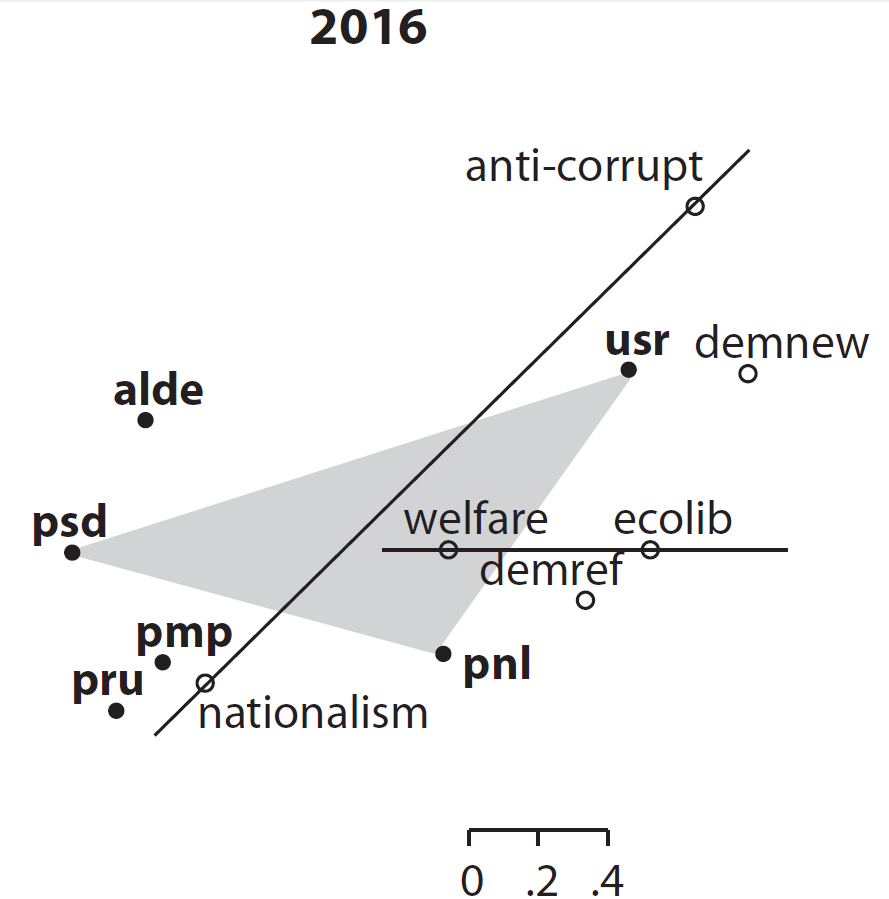CEE politics
parties, protest and voters in post-communist Europe

The structure of the Romanian political space. From Borbáth 2019.
While most of my work is comparative and concerns countries from northwestern, southern and eastern Europe, I am particularly interested in the specific issues post-communist countries face.
This line of research explores conflict structures, the strategies of mobilising actors, as well as patterns of individual behavior. I am generally interested in the region, but some of my work has a more narrow focus on the politics of Romania and Hungary.
This line of research explores conflict structures, the strategies of mobilising actors, as well as patterns of individual behavior. I am generally interested in the region, but some of my work has a more narrow focus on the politics of Romania and Hungary.
Publications
- Borbáth, E., & Gessler, T. (2021). How Do Populist Radical Right Parties Differentiate their Appeal? Evidence from the Media Strategy of the Hungarian Jobbik Party. Government and Opposition, online first.
Open access online or replication material - Löblová, O., Rone, J., & Borbáth, E. (2021). COVID-19 in Central and Eastern Europe—Focus on Czechia, Hungary, and Bulgaria. In S. L. Greer, E. J. King, E. M. da Fonseca, & A. Peralta-Santos (Eds.), Coronavirus Politics: The Comparative Politics and Policy of COVID-19 (pp. 413–435). University of Michigan Press.
Open access online - Borbáth, E. (2019). Romania — Polity contestation and the resilience of mainstream parties. In S. Hutter & H. Kriesi (Eds.), European Party Politics in Times of Crises (pp. 214–235). Cambridge University Press.
Open access online - Borbáth, E. (2018). When the Post-Communist Left Succeeds: The 2016 Romanian Parliamentary Election. In B. Laffan & L. Cicchi (Eds.), 2017: Europe’s bumper year of elections (pp. 133–150). European University Institute.
Open access online
Working papers
- Kim, S., & Borbáth, E. A Typology of Post-Communist Successor Parties in Central and Eastern Europe and an Explanatory Framework for Their (Non-)Success.
- Gessler, T., & Borbáth, E. The Hour of the Citizen – The Evolution of Eastern Europeans’ Conceptions of Democracy.
- Ecker, A., & Borbáth, E. The effect of electoral coordination on voting behaviour: Leveraging a quasi-experiment during the parliamentary elections in Hungary in 1998.